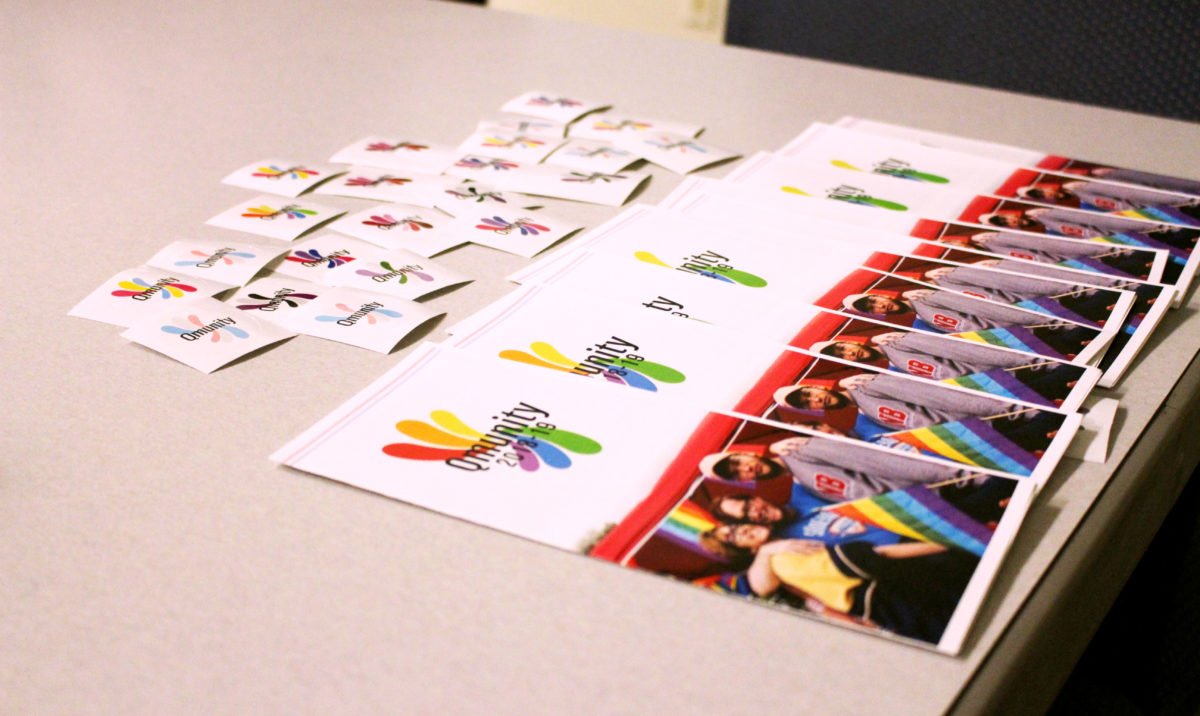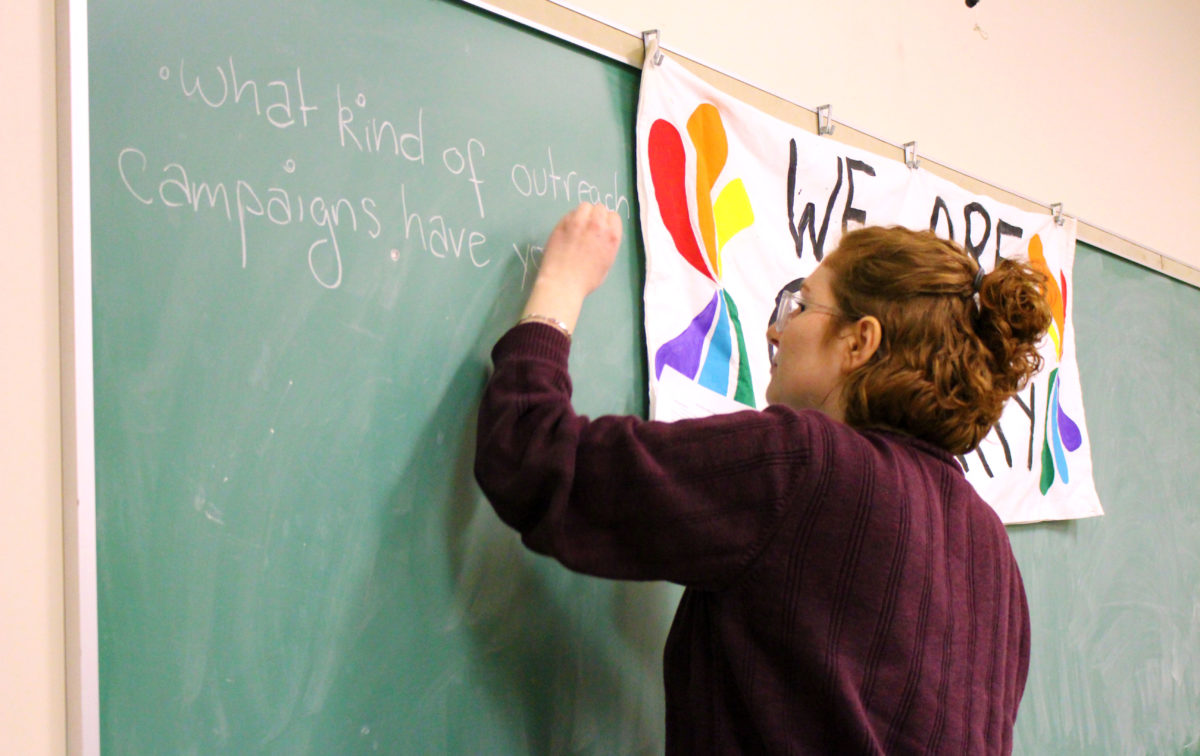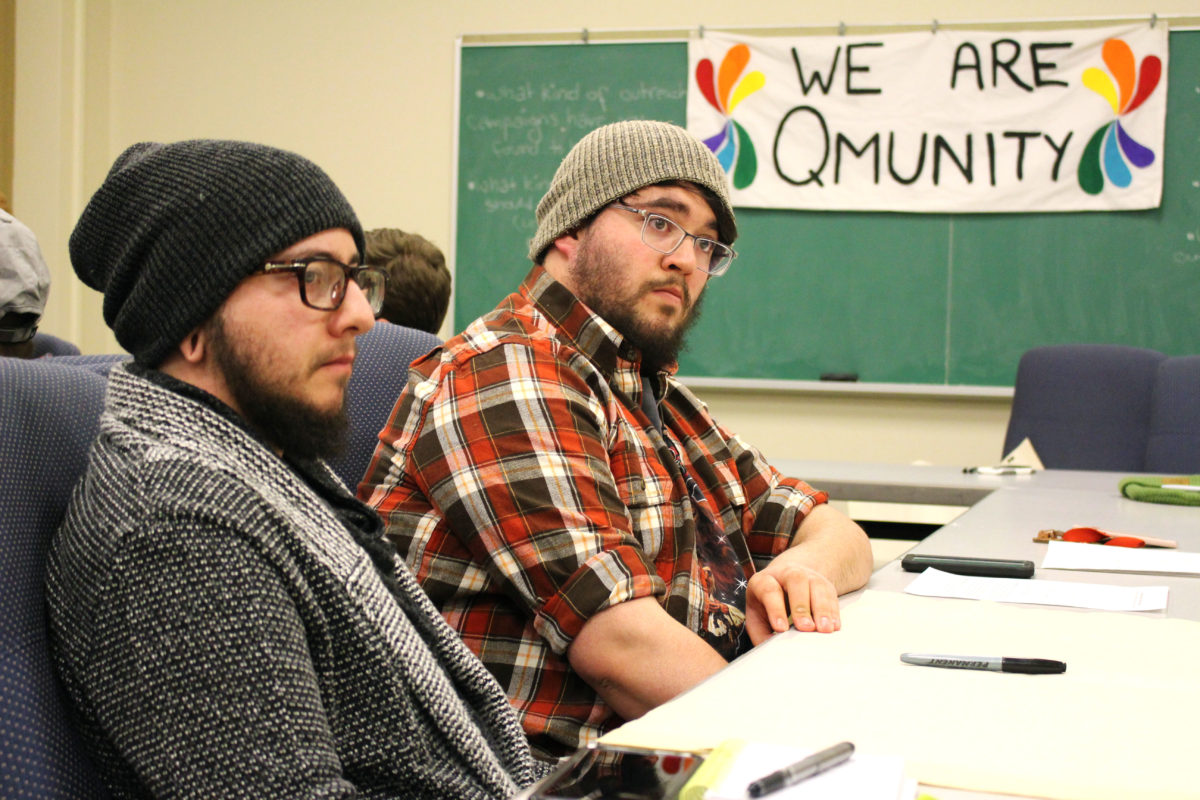Students at the University of New Brunswick say the current health-care system is not meeting the needs of LGBTQ people and have started planning a campaign advocating for transgender health care in the province.
Qmunity, a LGBTQ society on UNB’s campus, had their first open meeting of the semester on Jan. 21. The student-led group decided they need to focus on health care after MLA David Coon indicated that Horizon Health CEO Karen McGath said transgender health care was not on the list of network priorities.
“Karen said it hadn’t surfaced as a particular need around the province in their scoping of community health needs. However, she seemed open to adding this to their list of priorities if she were convinced that the demand was sufficient,” said Coon in an email to Qmunity.
At the meeting, community members voiced their challenges with the health-care system and brainstormed ways to get their concerns into the public eye and onto the priority list at Horizon.
Qmunity co-president Natasha Williamson said there needs to be more support for LGBTQ-focused clinics and doctors.
“Clinic 554 is woefully underfunded. It cannot serve the needs of the community enough because there is just so much need,” said Williamson.

Outside of a few specialized practices in the province like Clinic 554, there aren’t many well-informed health-care providers that make transgender people feel understood and welcomed. Qmunity executive member Ryan Wallace has been seeing a family doctor in the Edmundston area since childhood and was recently told the practitioner was not comfortable serving them anymore because Wallace is transgender.
Some health-care providers are discriminatory against transgender patients, some are nervous and ill-informed, but both situations pose a challenge to LGBTQ people. Members of Qmunity believe that mandatory LGBTQ training for health-care providers would go a long way.
Qmunity executive member Jenn Murray believes some health-care providers are discriminatory against transgender patients, and recently had a negative experience in the health-care system.
“It feels that some doctors, when you go into the office, they’re like ‘Oh, are you really trans?’ or the assumption that, they look at you and the assumption of whether or not you’re on hormones. And challenging one’s knowledge of their own body, their own understanding of gender,” said Murray.
Though Qmunity does not have concrete plans for the trans-health campaign, they hosted an event in October called Advocating Against Conversion Therapy in NB, where people could write letters to their MLAs about ending conversion therapy. The Green Party tabled a motion on Dec. 13 in the legislature to ban conversion therapy. Qmunity hopes the trans-health campaign will be as successful in creating change.


“It’s important that trans and LGBTQ people have their basic health-care needs covered and make sure that they feel welcome and included in health-care spaces,” said Williamson.
Shek Mchatten attended the meeting and has experienced the failings of the health-care system in New Brunswick. McHatten came out as transgender while living in Alberta and was able to access various health-care needs relatively easily. When they came to New Brunswick, their transition came to a halt.
Mchatten was seeing Adrian Edgar, a physician at Clinic 554 in Fredericton, which prioritizes LGBTQ patients. Patients see him for medical transition needs such as hormone replacement therapy and gender-affirming surgery referrals. However, there is a lot of demand at the clinic and not enough resources.
“I went a couple months without testosterone, which sent me through a spiral. Just because I couldn’t get in to see him,” said Mchatten.
“You’ll find Dr. Edgar or whoever. You’ll find doctors and stuff that help you out. But you’ll turn into a skeleton before you ever get anywhere with them.”

